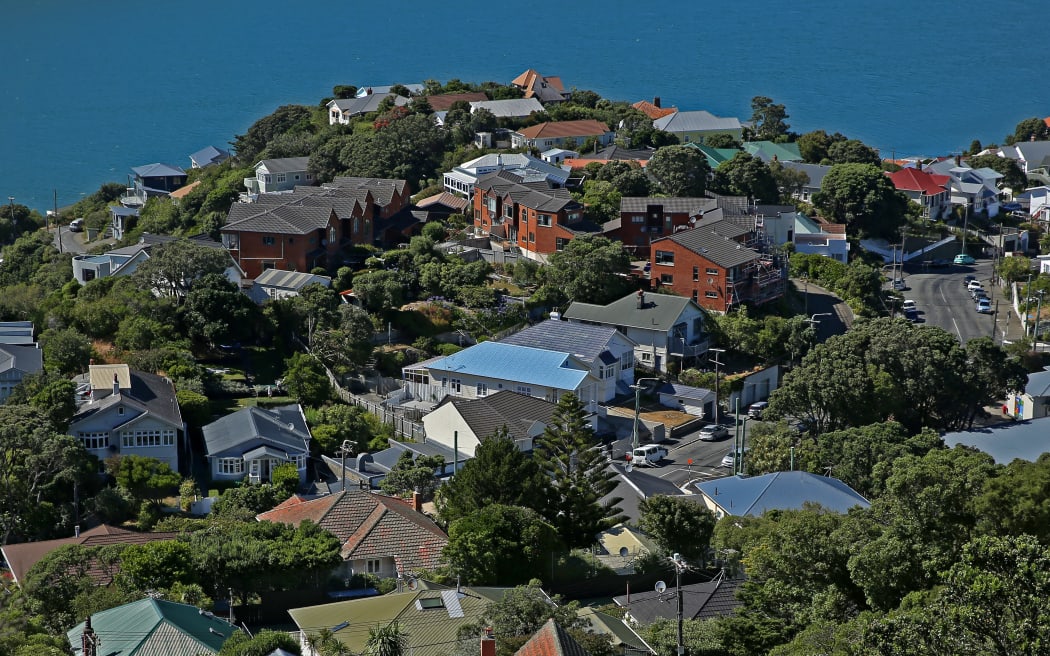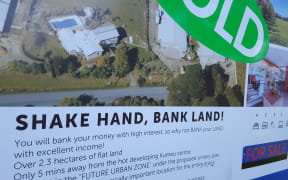Wellington's mayor is weighing up the possibility of penalties for land that is not being developed, as a way of speeding up house-building in the capital.

Photo: RNZ / Alexander Robertson
Wellington City Council announced in February it would build 750 new units of social and affordable housing in the next decade, to tackle Wellington's housing shortage.
Mayor Justin Lester said there were not enough houses being built in Wellington.
Nearly 500 hectares of land in the north of the city around Johnsonville and Newlands were forecast to be developed over the next 15 years, but that was too long, Mr Lester said.
The city needed to get its consent levels up to 1000 a year, from traditional levels of about 700.
"We might need to speed that up... I've got support from central government to do that as well - I've had conversations with senior ministers and they want to see some action."
Mr Lester said the idea of penalties was in the early stages, but it could involve financial penalties or targeted rates.
"Through our Special Housing Areas we've given opportunities for people to consent their land more effectively and more affordably. We've also had a moratorium on any increase in the value of the land once it's been sub-divided, so we don't charge for that.
"However what we're not seeing is enough houses being built still, so whether we have to look at sticks as well as carrots - that's something I'm prepared to look into."
Capital Property Investors Association president Alistair Gillespie said the market would take care of itself and being pushy would not lead to more land being cut up to go on the market.
"If this is the number of houses that are required to be built to satisfy people in the area then there has to be owners for those properties.
"If they're for rent you actually have to have a number of people that are prepared to invest in rental or properties for sale.
"For the developers there has to be incentive for them to do it. Using a whip is not an incentive in my mind."
Mr Gillespie said so-called land-bankers were often important property developers.
"Probably a lot of corporate speak would be that's just pipeline work that's coming up. You are provisioning for the future. You have a work in the pipeline that's under progress now and stuff that's planned for being developed later.
"When the current stuff is finished then that's actually when you move into the land that you've actually set aside for a new development."
A property developer in the city and the managing director of the Wellington Company, Ian Cassels, said he did not want to see the city sprawl too far.
"Wellington needs to remember its core offering and its DNA is intense city living.
"There's reasonable amount of stock in terms of suburban houses on the old quarter acre section or something slightly smaller these days but there's plenty of stuff like that and that's the stuff that's actually quite expensive for a city to maintain and build."
Land owners in Auckland have been accused of 'land-banking' - particularly in the rural west.
Last year Housing Minister Nick Smith said Cabinet would consider a proposal to let local authorities acquire empty, land-banked property.
The Wellington City Council also announced today that rates would rise 3.3 percent, a 35 percent drop in what ratepayers were told to expect in 2015.



